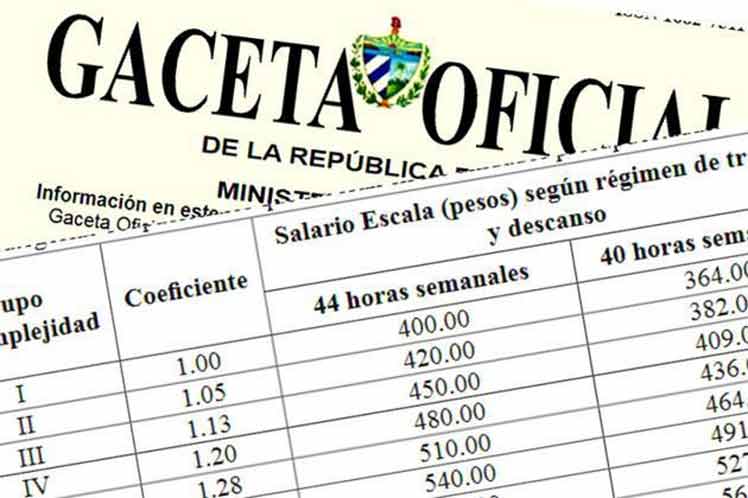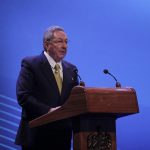Havana: The incentive to work, the wage reform and the increase in national production make up a core triad of Cuba’s economic-social strategy to face the crisis caused by Covid-19, Prensa Latina publishes.
The plan seeks a productive chain that allows substituting imports in a context of greater commercial, financial and economic persecution by the United States government (USA) as part of the tightening of the blockade that has been maintained over Cuba for more than half a century.
In this sense, the employment and salary, security and social care policy is listed as one of the 16 key areas conceived in the strategy due to its transversality, since it impacts the entire economy and society in general.
In a world marked by the negative effects of Covid-19, neoliberal policies and the market economy, Cuba plans to unleash its productive forces with social support that protects the most vulnerable.
The strategy approved last July seeks that remuneration for work is ‘the main source of income that sustains decent living conditions, allows raising material and spiritual well-being and the realization of individual, collective and social projects’, as recognized by the Constitution of the Republic in its article 31.
For this reason, the plan is aimed at streamlining hiring processes, favoring a greater integration of young people, as well as generating quality jobs that combine national and local interests.
The Minister of Labor and Social Security, Marta Elena Feitó, recently assured that in the current epidemiological situation it is essential to adjust the hiring mechanisms, with emphasis on the use of remote work and teleworking.
Similarly, making self-employment more flexible and paying for high performance are other actions contemplated within a strategy that also has guarantees for social protection.
The actions are aimed at perfecting social security procedures, modifying the rules for calculating pensions and standardizing the treatment of maternity for women workers in all sectors.
As a novelty, the computerization of the systems is proposed in the face of the obsolete records that exist.
The President of Cuba, Miguel Díaz-Canel, emphasized that the strategy took into account the prolonged situation of international crisis and the criteria of the population, while allowing a greater association of science and academia in terms of development.
Government office beyond the pandemic
Concern for citizens’ rights is an inherent part of governance in Cuba due to the political will to prioritize man before the market.
Previously, the country had already adopted 36 measures in the labor, salary and social security fields to prevent and face Covid-19.
Some of them were tele and remote work, relocation to other positions, expansion of salary guarantees and exemption from paying taxes to 240,000 representatives of the non-state sector.
However, achieving a decent job and salary are goals set long before the current epidemiological situation.
In 2008, the first secretary of the Communist Party of Cuba, Raúl Castro, stated that it is’ a strategic objective to advance in a coherent, solid and well-thought-out way, until the salary recovers its role and the standard of living of each person is in relation directly with the income that he receives legally, that is, with the importance and quantity of the work that he contributes to society ‘.
Díaz-Canel recently emphasized that what was designed now started from the bases of the National Plan for Economic and Social Development, the Conceptualization of the Economic and Social Model, as well as the updating of the Guidelines, documents approved at the seventh congress of the Communist Party of Cuba in 2016.
Data from the National Office of Statistics and Information show that the average salary in Cuba has increased every year since that date.
In 2016 this indicator rose by 53 Cuban pesos (CUP), the following year by 27, in 2018 it did so by 10 and in 2019 the average salary grew 102 Cuban pesos (in exchange houses and banks, one dollar USD is sold for 25 CUP ).
As of July of last year, an increase in remuneration was applied in the budgeted sector that benefited more than 1,470,000 workers and their families.
At that time, the Cuban president warned that it was not a salary reform, since that objective involves a deeper economic strategy linked to the monetary order in the country.
Figures from the Ministry of Labor and Social Security locate in more of two million the total of employees in the state sector, and in 613 thousand those linked by own account or private.

Redacción Digital
Equipo de redactores del sitio web de Radio Mayabeque



